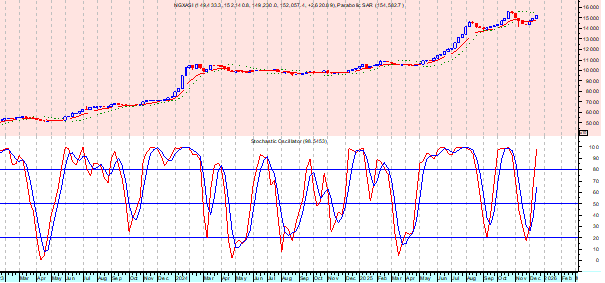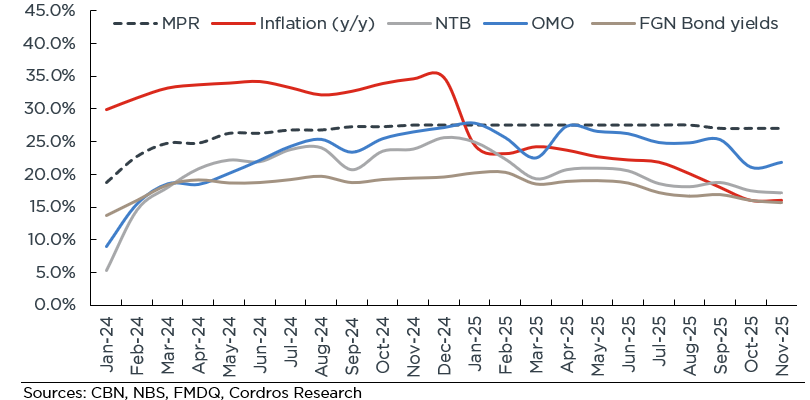
The Central Bank of Nigeria (CBN), at the weekend, published its Monthly Business Expectations Survey Report for September, highlights of which saw respondent firms expressing optimism in the nation’s macro economy.
They also express hope about the volume of total order, business activity and financial conditions (working capital) remained positive during the review period, while lamenting the poor power supply and high interest rate, that balloon operating expenses in the country.
Other factors constraining the business environment, according to the report by CBN’s Statistics Department, are: unfavourable economic, financial problems, unclear economic laws, and unfavourable political climate, made worse by insufficient demand and access to credit.
Respondent firms in the survey undertaken between September 10 and 14, 2018, with a sample size of 1050 businesses nationwide, also expressed hope that the Naira would appreciate, just as inflation rate falls, and borrowing rates to rise in both the current month and next month.
The report said the survey whose sample covered the services, industry, wholesale/retail trade and construction sectors, achieved a response rate of 93.4%.
The respondent firms comprised of small, medium and large organizations covering both import- and export oriented businesses.
The report noted that “at 24.8 index points, respondents’ overall confidence index (CI) on the macro economy in September 2018 was more optimistic when compared with the level of 21.5 index points recorded in August 2018.”
The businesses outlook for October 2018 showed more confidence on the macro economy at 64.5 index points, driven by the opinion of respondents from services (16.2 points), industrial (6.0 points), wholesale/retail trade (1.9 points) and construction sectors (0.6 points. Drivers of the optimism for next month were listed as: services (38.3 points), industrial (18.8 points), wholesale/retail trade (4.9 points) and construction (2.5 points) sectors.
“The positive outlook by type of business in September 2018 were driven by businesses that are neither import- nor export-oriented (17.8 points), both import- and export-oriented (3.6 points) import-oriented (2.8 points), and those that are export-related (0.6 points).”
Respondents from services and industrial sectors expressed relatively more optimism on own operations in the current month with indices of 9.6 and 2.1 points, respectively when compared with 8.1 and -1.1 points reported in August 2018, respectively.
On Financial Condition and Access to Credit, respondents’ outlook on the volume of total order and business activity in September 2018, the report noted, remained positive, as the index stood at 16.0 and 15.2 points, respectively when compared to 9.1 and 10.0 points, respectively recorded in the previous month.
Also, respondents’ outlook on financial conditions (working capital) and average capacity utilization improved, as the indices stood at 11.6 and 18.3 index points, when compared with the 8.4 and 15.9 points, respectively recorded in August 2018.
“Respondents were pessimistic on access to credit in the review month, with an index of -0.7 points,” just as there was positive outlook in the volume of business activities (70.4 index points) and employment (24.4 index points),” which it said indicated a favourable business outlook in the next month.
The employment outlook index by sector showed that the services sector (27.7 points) reported the highest prospects for creating jobs, followed by industrial (21.1 points), wholesale/retail trade (17.8 points), and construction sector (16.2 points).
An analysis of businesses expansion plans by sector next month showed that the services sector indicates greater disposition for expansion with an index of 24.0 index points followed by construction and wholesale/retail trade sectors with 18.5 and 16.7 index points respectively.
The surveyed firms identified insufficient power supply (65.9 points), high interest rate (54.9 points), unfavourable economic climate (53.6 points), financial problems (51.6 points), unclear economic laws (47.1 points), unfavourable political climate (46.9 points), insufficient demand (44.5 points) and access to credit (40.4 points) as the major factors constraining business activity in the current month.
On their expectations on exchange rate, majority of the respondent firms expect the naira to appreciate in the current and next month’s as the confidence indices stood at 29.9 and 41.5 points, respectively; while expecting inflation rate to fall in both the current and next months, with confidence indices of -4.7 and -13.9 points for the current and next months, respectively.
Similarly, respondent firms expect borrowing rates to rise in both current month and next month as the confidence indices stood at 3.7 and 1.8 points, respectively.













